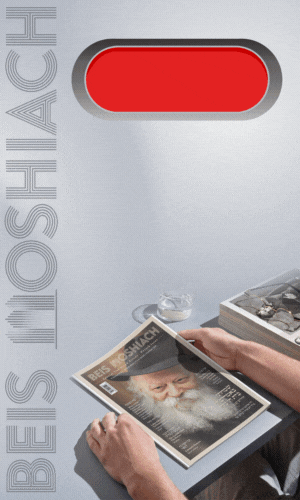Should Students Be Encouraged to Ask Questions?
I am a teacher at a girls high school. Every so often, a girl will ask a really silly question (not even intending to be chutzpadik) and it really puts a damper on the entire atmosphere of the class. I was considering cutting down on the time allotted for questions and focus on just extending the lesson. Did the Rebbe ever write about this? • Rabbi Gershon Avtzon answers in this week’s Chinuch and Moshiach column • Full Article
By Rabbi Gershon Avtzon
Question: I am a teacher at a girls high school and really try to invest in my lessons and engage my students. I have always encouraged questions and open discussion on the topics that we learn. Every so often, a girl will ask a really silly question (not even intending to be chutzpadik) and it really puts a damper on the entire atmosphere of the class. I was considering cutting down on the time allotted for questions and focus on just extending the lesson. I try to be consistent with the Rebbe’s approach to education and was wondering if the Rebbe ever wrote about this?
Answer: As a teacher for many years, I am fully aware and understand what you are going through. From the following letters of the Rebbeim, you will see the importance of allowing questions as well as the right approach to a question that seems silly or inappropriate. While some of these letters were primarily written for women that were involved in outreach, the lesson can be applied to our own classrooms as well.
“Allowing Questions Develops an Interest”
(1) In 5716 (1956), Rabbi Dovid Bravman, who served as head of the Kfar Chabad town council, wrote a letter to the Rebbe. In the previous year, he was elected to this position without even presenting his candidacy. A member of the community suggested he’d make a good yoshev rosh (chairman); many residents of the Kfar agreed and voted him in. He wrote to the Rebbe about what Kfar Chabad was doing to educate its women and girls and the activities that the women were doing. He received the following response:
“Regarding the younger girls: It would be very beneficial if the ones giving the lectures would encourage those who are learning to ask questions on the subject matter. This would draw them into the subjects and help them develop an interest in what is being taught. It is very common that in these settings someone will ask a question that seems totally off topic. Do not be let down or agitated by these types of questions — and even if the question is completely inappropriate — for these circumstances will be the rare exception and when they do occur, you will be able to find the right words to remove the negative impressions that it engendered.” (Igros, Vol. 12 p. 191; #4002).
“The Debates Help The Teacher Know Where his Students Are Holding”
(2) In 5704 (1944), The Rebbe Rayatz wrote a letter to Rabbi Shlomo Zalman Hecht in which he gave him directives and instructions of how to set up his lectures and classes:
“If the people that are attending are intelligent, it would be a good idea that after the lesson you should allow time for discussion and debate. This would be a platform in which everyone can share their ideas and opinions. This will allow you — the shliach — to know where they truly stand so that you will be able to know what you need to do to bring them closer to Torah and Mitzvos.
You should tell them that they should ask questions which you will answer in the upcoming classes. This approach should also be taken for simple questions — they should not be answered right away — for a variety of reasons. One of the reasons is that the one that is asking the question should see that you take his question seriously and thus will develop a deeper trust in your answer. Even a silly question needs to receive a serious answer that will elevate the one that is asking the question and thus begin his “curing” process.” (Rebbe Rayatz’s Igros, Vol. 8 p. 209; #2307).
It should be noted that in that letter, the Rebbe Rayatz tells over a story that happened with the famous learned and brilliant Chassid Rabbi Aizik Homiler. In short: once, a simple wagon came to him and asked him — in a serious way — if he is allowed to give a ride to a divorcee. It seems that he was told that he, as a Kohen, is not allowed to “take” (i.e. marry) a divorcee and he thought that it was referring to his business. Reb Aizik listened very seriously, made as if he was opening many sefarim and asked him a few questions including if he had an assistant with him (presumably to avoid any questions of yichud) and then “ruled” that he could give her a ride in his wagon. The Rebbe Rayatz comments: “There is much to learn from this story and as our sages say that one should give a thought to a wise man and he will develop the wisdom on his own.”
Teach Students How to Ask as a Jew, Not an Apikores
(3) In a sicha (Shabbos Bereishis 5750), the Rebbe discusses a comment of Rashi on what it means that “Hashem regretted that He had made man and became sad of heart,” (Bereishis 6:6) which he prefaces with “I wrote the following as a response to non-believers.”
The Rebbe wonders: Although it is important to “Know what to respond to an apikores,” this is not the goal of Rashi’s commentary on the Torah. Additionally, the question “How is it possible for G‑d to have a change of heart?” is one that is likely to be asked by any Jewish child. Why does Rashi associate this with apikurses (heresy)?
The answer is that Rashi is teaching us how a Jewish child should ask a question. An apikores comes with a challenge: “Don’t you acknowledge that G‑d sees the future?” In contrast, a Jew believes that the Torah is true and he believes that G‑d knows the future. There is room for questions, because a Jew is obligated to attempt to understand G‑d. However, a Jewish child must ask in a way which reflects his faith in Hashem. This implies a responsibility for teachers, that they must instruct their students in a manner which inculcates faith and belief. Similarly, a teacher must instruct a child not to drink cholov akum (milk not supervised by a Jew) for this leads to undesirable thoughts.”
The Moshiach Connection:
While the foundation of our approach to Moshiach is emunah (faith), we find in many Sichos where the Rebbe addressed the questions and worries of Chassidim on this topic. Here is one example (Korach 5751):
“One might still raise a question, as others have done … what will be the world’s and the nation’s response to the Jewish efforts at “disseminating the wellsprings to the remotest reaches,” in an effort to hasten the true and complete Redemption, since they do not understand what all this means?! Granted, these efforts are noble and sublime, but one might object, we have to consider the world’s reaction!
The answer to these questions is: The world is ready and completely receptive! When a Jew performs his work properly, transcending all limits and constraints, and simultaneously channeling these efforts within the parameters of nature, he will see how the world, nature and the nations of the world will assist him in his work.”
69
Join ChabadInfo's News Roundup and alerts for the HOTTEST Chabad news and updates!











































